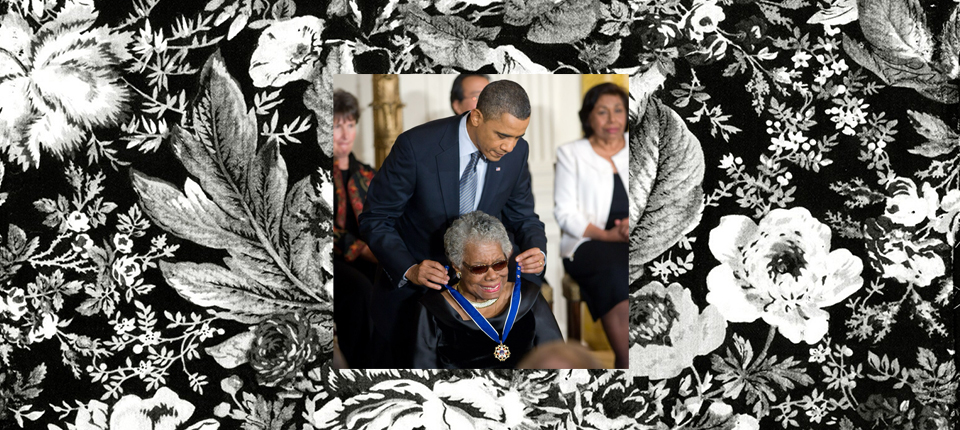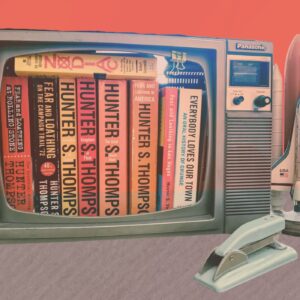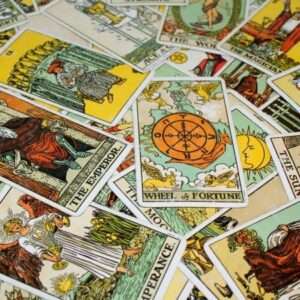Lit Hub Weekly: February 10 - 14, 2025
THE BEST OF THE LITERARY INTERNET

- “With his authoritarian orders, the president—and his unelected South African Rasputin—have eliminated the fundamental tools of discussion and debate, namely words themselves.” Rob Spillman on self-censorship and why writers, editors, and publishers should not obey in advance. | Lit Hub Politics
- Larissa Pham on baking, heteronormativity, and why we’re drawn to the false promise of the tradwife. | Lit Hub Food
- Chloé Caldwell on how dating apps turned her into a bookseller. | Lit Hub Memoir
- Just in time for Valentine’s Day: 25 writers explain the anatomy of a good sex scene. | Lit Hub Craft
- “One gets the sense that politics has gone off, like a cell phone, in the darkened theater of Pamela Paul’s mind. It is worse than wrong: It is rude.” Andrea Long Chu on Pamela Paul and reactionary liberalism. | New York Magazine
- Rachel Davies explores the past and (disappointing) present of the recently relaunched IKEA Byakorre bookshelf. | Dirt
- An interview with the computer scientist (and poetry lover) who has created a genomic LLM to “help make sense of the genetic library. | Quanta
- “Nothing New”: A (newly) rediscovered poem by Robert Frost. | The New Yorker
- “This is the chance for a change, an exchange of positions or a swapping of partners in the pederastic psychagogy of reading.” Peter Szendy considers Phaedrus and the erotics of rereading. | The Paris Review
- Paisley Currah on the “full-throated explicit dehumanization” of trans people in America. | n+1
- Jhumpa Lahiri on translating Ovid’s Metamorphoses: “At a certain point, the ‘sacred stone’ of the source text must be cast behind my back so as to give birth to a new version in a new language in a new moment in time.” | The Dial
- Rosalind Harvey considers the work of translation through the lens of attachment theory. | Words Without Borders
- Palestinian writer Mohammed El-Kurd on “the criminalization of thought” in the United States and Israel. | Democracy Now!
- “The culture industries have been thoroughly colonized by complex financial players (mainly hedge funds and private-equity groups) and their warped logics of sociality.” Ryan Boyd explores the death of culture at the hands of finance. | Public Books
- Hermione Hoby considers the proliferation of the Divorce Plot. | Bookforum
- “The people who shape this future need to be us Palestinians—not the people who made Gaza look like a demolition site, or who now seem to think that an entire people should be demolished, too.” Mosab Abu Toha on the rebuilding of Gaza. | The New Yorker
- Vrinda Jagota revisits Rupi Kaur’s milk and honey, ten years on. | Los Angeles Review of Books
- “The suffering was boundless. Questions raised threateningly at existence itself could not be answered; bitter resentments spurted out and piled up.” Poet Muhammad al-Zaqzouq recounts the first weeks of the war in Gaza. | New York Review of Books
- “Its criminal testimony is indisputable:” Michael Barron on Oromay, the novel that cost Ethiopian author Baalu Girma his life. | The Baffler
Also on Lit Hub:
Reflections on the MLA convention walk out for Palestine • Why we owe our understanding of mass violence to modernity • Following Central Park’s late, great Flaco the Owl • On walking the world in a shifting body and gender • Lidia Yuknavitch on expressing loss • Trauma, recovery, and what it means to be a writer • How the horrors in Gaza were shaped by other 20th century atrocities • Haley Mlotek, Shane McCrae, Maggie Su and more authors take the Lit Hub questionnaire • On Palestine and the complexities of resilience and victimhood • Lauren Francis-Sharma recommends books that explore South African identity • Amanda Peters on her short story collection • Read Timothy Snyder’s first rule of fighting fascism • The novelist to community organizer pipeline • Mohammed El-Kurd and the preservation of Palestinian humanity • Brigitte Giraud tells us about the alternate universe where she’s a pop star • Eternal questions of race and power in America • Two poems by Emma Ruth Rundle from the collection The Bella Vista • Why Black and Native families struggle to achieve social mobility through education • Megan Marshall traces Nathaniel Hawthorne’s family and biographical lies • Why dropping book blurbs might be easier said than done • Which books are on Sonya Walger’s TBR? • 5 book reviews you need to read this week • On Alba de Céspedes’s There’s No Turning Back • Rich Benjamin on making sense of a vanishing Haitian heritage • The 19th-century craze to reach the North Pole • The science behind what we say at the beginning and end of life • This week on The Lit Hub Podcast • Angelica Mazza considers the romance novel’s mainstream moment • Roisín O’Donnell on developing a short story into a novel • The best reviewed books of the week • Eric Olson talks to Charlotte Wood • The case for visual artistic experimentation in literature • The societal and psychological effects of anti-Blackness • How the synth conquered American music • Read “Joined To All The Living There Is Hope,” a poem by Jonathan Fink • The colorful, illustrated envelopes Edward Gorey sent to his friend



















